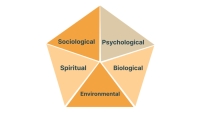Research Labs
Faculty members of the Columbia Department of Psychiatry run a wide variety of Research Laboratories. Columbia Psychiatry faculty members are recognized as world leaders in the neurosciences and related disciplines, and have made major advances in understanding the biology of the mind. Research in these laboratories range from basic biological sciences to epidemiological, psychometric, neuroimaging and other areas. Many laboratories enroll people with psychiatric diagnoses and healthy controls to study psychiatric disorders using cutting edge technologies such as MRI and PET scanning.
-
The Adolescent Depression Research Group conducts research examining the evidence-based psychotherapy treatment and treatment outcomes for adolescent depression.
-
The Boldrini Laboratory is interested in the molecular mechanisms of cell viability and function in human brain aging and disease.
-
The Brain Imaging Lab is housed in the Molecular Imaging and Neuropathology Division at the New York State Psychiatric Institute and Columbia University Department of Psychiatry
-
The Cannabis, Youth, Safety, and Effectiveness Research Group studies cannabis's public health impact, focusing on youth and mental health, using psychiatry, epidemiology, and chemical analysis.
-
The Center for Behavioral Health and Youth Justice is at the forefront of local and national efforts to promote behavioral health services in community and youth justice settings.
-
Our Lab uses state-of-the-art methodologies to support diverse, often underserved, and understudied populations in the United States and abroad.
-
Our goal is to better understand anxiety disorders and develop effective treatments for children and families.
-
Our research focuses on understanding the neurodevelopmental trajectories of psychiatric disorders that arise during childhood and adolescence.
-
The Columbia-Suicide Severity Rating Scale (C-SSRS) is a unique suicide risk assessment tool that supports suicide risk assessment through a series of simple, plain-language questions anyone can ask.
-
The Communication Sciences Lab focuses on the microanalysis of mother-infant communication, risk and resilience, and developmental outcomes.
-
The Community Suicide Prevention Group conducts research that targets priorities of the U.S. National Strategy for Suicide Prevention.
-
The Denny Laboratory is interested in the molecular mechanisms underlying learning and memory.
-
This lab is devoted to the development of structured interviews and other assessment tools including training materials for making diagnoses in accord with the DSM and ICD.
-
The DIVAA Lab provides mental health services and care to historically underserved survivors and those who inflict intimate partner violence.
-
The overarching goal of the Early N³ Lab is to identify early immune, brain, and neuropsychological antecedents of childhood psychiatric risk to reduce the time to intervention for young children.
-
The EMDR Lab studies how Eye Movement Desensitization and Reprocessing (EMDR) can heal PTSD and trauma-related conditions, bridging neuroscience and clinical care.
-
The Evolutionary Psychiatry Lab studies mental health through evolution, exploring whether psychiatric traits are adaptations rather than true illnesses in today’s world.
-
The Grinband Lab focuses on neurovascular coupling, decision-making, and models of treatment response in schizophrenia.
-
Our lab mainly focuses on the neurobiological and computational mechanisms of psychotic symptoms in schizophrenia and of related cognitive functions in health.
-
We explore the computational principles underlying learning and decision-making behavior and inform our understanding of mental disorders through the study of variation in their neural realization.
-
The Integrative Neural Systems Lab studies genetic risk for mental illness, focusing on schizophrenia, working memory, and brain circuit dysfunction using mouse models and systems neuroscience.
-
Our laboratory uses mouse genetic tools in an effort to understand the biology that underlies the symptoms of schizophrenia.
-
The Ketamine-Assisted Psychotherapy Lab studies ketamine’s rapid antidepressant effects, its neural mechanisms, and how psychotherapy can enhance treatment for severe mood disorders.
-
The Integrative Psychiatry Lab develops and studies multimodal treatments, combining clinical psychiatry, neuroscience, and holistic approaches to improve outcomes in complex mental health conditions.
-
The Laboratory of Adaptive Behavior's research aims to understand the neural mechanisms of behaviors that are disrupted in psychiatric and neurological illnesses.
-
The Levine Laboratory studies the role of social involvement in enhancing health and warding off adversity.
-
The Lugo Lab aims to understand the risk-protective factors that confer resilience to perinatal risk and allow young children and families to thrive, despite facing significant adversity.
-
The focus of our lab is researching novel uses for existing therapies.
-
The Methodology and Measurement Group provides expert consultation on methodological and measurement/assessment issues.
-
The Mitochondrial PsychoBiology Group conducts research that enhances the understanding of mind-body interactions.
-
The NeuroDiversity Lab advances research on autism and ADHD, exploring neurodevelopmental diversity to improve understanding, treatment, and support for neurodivergent individuals.
-
The NVLD Research Program aims to establish NVLD as a discrete clinical entity, increasing access to appropriate psychological and educational services.
-
The Patel Laboratory is interested in the neural mechanisms underlying social cognition and how they become disordered in neuropsychiatric disorders.
-
The Perinatal Pathways Lab conducts research studies with pregnant women and their babies to improve their well–being and their future children’s lives.
-
The PROMISE research team at Columbia is dedicated to studying the underlying causes of learning disabilities and discovering novel therapeutic interventions.
-
The Schizophrenia Lab advances research with data-driven insights, clozapine treatment optimization, and early psychosis intervention using informatics and clinical innovation.
-
The Singh Lab is interested in using genomics to answer specific questions related to the causes of mental illnesses.
-
The Social Media and Mental Health Lab studies how digital use affects youth, creating guidelines to reduce risks like depression, anxiety, poor sleep, and low self-esteem.
-
Improving day-to-day treatment safety and quality of care with Innovative Epidemiology and Big Data. Topics: Schizophrenia, ADHD, Cannabis and Evolutionary Psychiatry
-
The Sussman Lab examines how exposure to adversities during childhood impact the development of decision making and related brain activity.
-
The Neural Circuits Lab investigates the neural circuitry underlying psychiatric disorders by recording and manipulating neural activity in mouse models.
-
Dedicated to Helping Children with Autism Spectrum Disorder or Obsessive-Compulsive Disorder.
-
The Translational Research on Affective Disorders and Suicide Laboratory focuses on the etiology and treatment of depression, suicide, and self-injurious behaviors.






